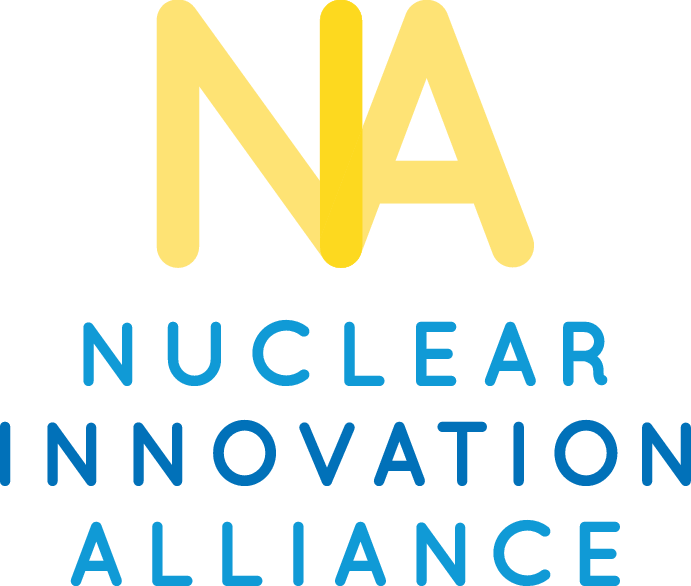
WASHINGTON, D.C. This op-ed was published in the February 15th edition of Colorado Politics (CoPo). To read the op-ed on the CoPo website, click here: Advanced Nuclear Reactors Can Provide Colorado with Clean, Reliable and Affordable Energy
Advanced Nuclear Reactors Can Provide Colorado with Clean, Reliable and Affordable Energy
The emerging advanced nuclear energy industry is poised to help communities across the country achieve and sustain long-term energy and climate goals. Ranging in scale from microreactors that can provide distributed energy to medium-sized reactors that can power cities and large industrial facilities, advanced nuclear reactors promise clean energy that is reliable and safe, and can help meet state-level economic, energy, and environmental objectives. These new nuclear reactors, which should be ready for commercial deployment by the end of this decade, will change the way we approach energy and decarbonization in Colorado, the United States and around the world.
The Colorado state legislature is considering a bill that would launch a feasibility study of small modular reactors, or SMRs. Advanced reactors, including SMRs, are fundamentally different from conventional nuclear reactors operating today and offer a nimbler approach to carbon-free nuclear energy. SMRs are typically smaller in size and quicker to build, enabling nuclear energy as an option for rural communities, municipal utilities, and industrial users. This business model differs from larger and more capital-intensive conventional nuclear reactor projects.
SMRs are also scalable, meaning they can meet the varying needs of customers from small universities to large investor-owned utilities. Their smaller size and flexible operations for different customers effectively match changing energy demands and complement renewable energy generation throughout the day without the need for large amounts of energy storage. Smaller reactors also enable modular additions of nuclear energy capacity that more efficiently meet the increasing energy needs of growing communities. Their size and modularity enable the factory manufacturing of reactors and can reduce the time needed for on-site construction and installation, reducing the risks and impacts of cost overruns and schedule delays.
The design, operation and maintenance of advanced reactors is predicated on safety. The emphasis on new safety features helps simplify the siting requirements and can eliminate the need for emergency planning requirements in surrounding communities. Some advanced reactors also feature improved fuel performance, which would reduce the volume of spent nuclear fuel produced during operation. Advanced reactors are subject to review by the Nuclear Regulatory Commission and will meet or outperform the safety standards for nuclear energy in the United States. Finally, while focus is often placed on decarbonizing the electricity sector, decarbonizing all major industries and sectors of the economy is essential to mitigate climate change. Advanced reactors can help supply clean, reliable, carbon-free energy for heat, electricity, and fuels to the residential, commercial, industrial, and transportation sectors.
States have begun to take notice of the potential advantages of SMRs and advanced nuclear energy more broadly. On February 8th, West Virginia repealed their state’s ban on nuclear facilities construction. Other states like Montana, Kentucky, and Wisconsin have also recently overturned nuclear construction bans or eased their restrictions on new facilities. State policymakers, communities, industries, and other stakeholders are starting to recognize the promise of early adoption of advanced nuclear energy through demonstration projects. Early adoption will bring high-paying jobs, technology innovation hubs and university partnerships, and centralized supply chains – footholds for a rapidly growing and dynamic industry to new states and regions. To realize these benefits, state leaders should consider various policy options that enable or encourage deployment of advanced nuclear energy in their home state. This could range from providing incentives for demonstration projects; establishing and funding public-private partnerships between universities, companies, and communities; or incorporating advanced nuclear energy into state clean energy standards and strategic planning processes.
An essential first step to adopting advanced nuclear energy is for state policymakers, communities and stakeholders to understand the benefits of nuclear innovation. Building informed consensus will enable ambitious climate and energy policies at the state level that can help introduce advanced nuclear technology efficiently and cost-effectively. Colorado can start exploring this promising opportunity with a feasibility study for SMRs, as proposed in SB22-073. The bill would provide Coloradans with key information on how small modular reactors can help supply the state with safe, clean, reliable, and affordable energy.
Acknowledgement: Judi Greenwald, Executive Director, Nuclear Innovation Alliance.